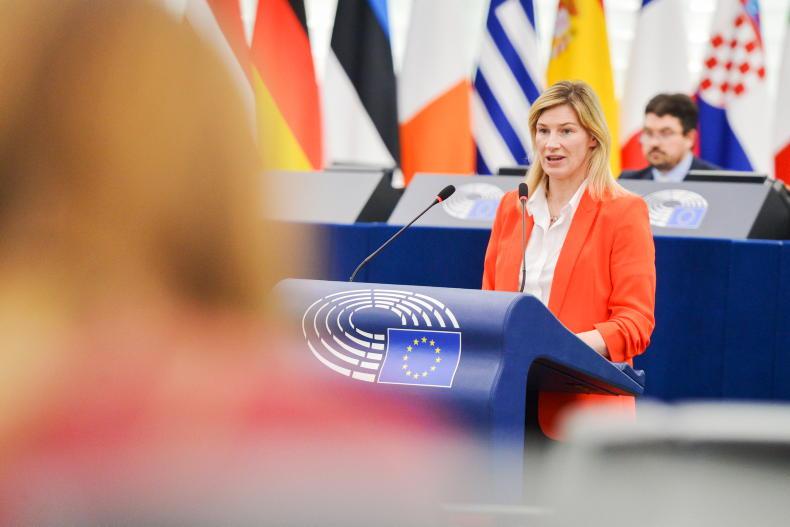SPEAKING at the European Parliament gathering in Strasbourg this week, MEP Nina Carberry, Ireland’s only full member of the European Parliament’s Transport Committee, vocalised her ongoing concerns regarding animal transport legislation.
Carberry said: “The proposed animal transport law takes a one-size-fits-all approach and ignores the unique needs of equine transport.”
The representative for the Midlands Northwest has raised concerns about the EU’s proposed regulation, ahead of a committee hearing with the European Court of Auditors in Brussels next week.
While fully supporting better enforcement of animal welfare standards, Carberry warns the current draft law risks disrupting Europe’s bloodstock, racing and sport horse industries, if not amended.
“The European Commission have proposed new journey time limits, along with changes to space allowances in horse boxes, which could severely impact the equine industry.
“We are obliged to transport our animals to the very highest global standards, and I absolutely support better enforcement of the rules. However, it is critical that horses being transported for breeding or sport are treated differently to the transport of other livestock, with rules tailored to their specific needs. That’s what I am working to amend,” the Fine Gael MEP added.
Currently, 87% of horses transported within the EU are moved for competition, racing, breeding, recreation or cultural events.
“This demonstrates the vital economic role of equine transport, which cannot be treated the same as other animal sectors,” Carberry noted.
Carberry recently hosted equine stakeholders in the European Parliament and met with Agriculture Commissioner Christophe Hansen and Transport Commissioner Apostolos Tzitzikostas to push for a more balanced regulation.
“Before negotiations begin in April, I plan to propose amendments in the European Parliament to ensure fair and workable legislation. It is vital that we strike the right balance between addressing critically important animal welfare concerns and supporting the economic, sporting and cultural significance of equine transport, as well as the broader needs of our agricultural sectors.
“To advance this work, I hope to collaborate closely with our newly appointed Ministers, in particular at the Department of Agriculture, Food and the Marine,” she concluded.


 This is a subscriber-only article
This is a subscriber-only article
 It looks like you're browsing in private mode
It looks like you're browsing in private mode





SHARING OPTIONS: